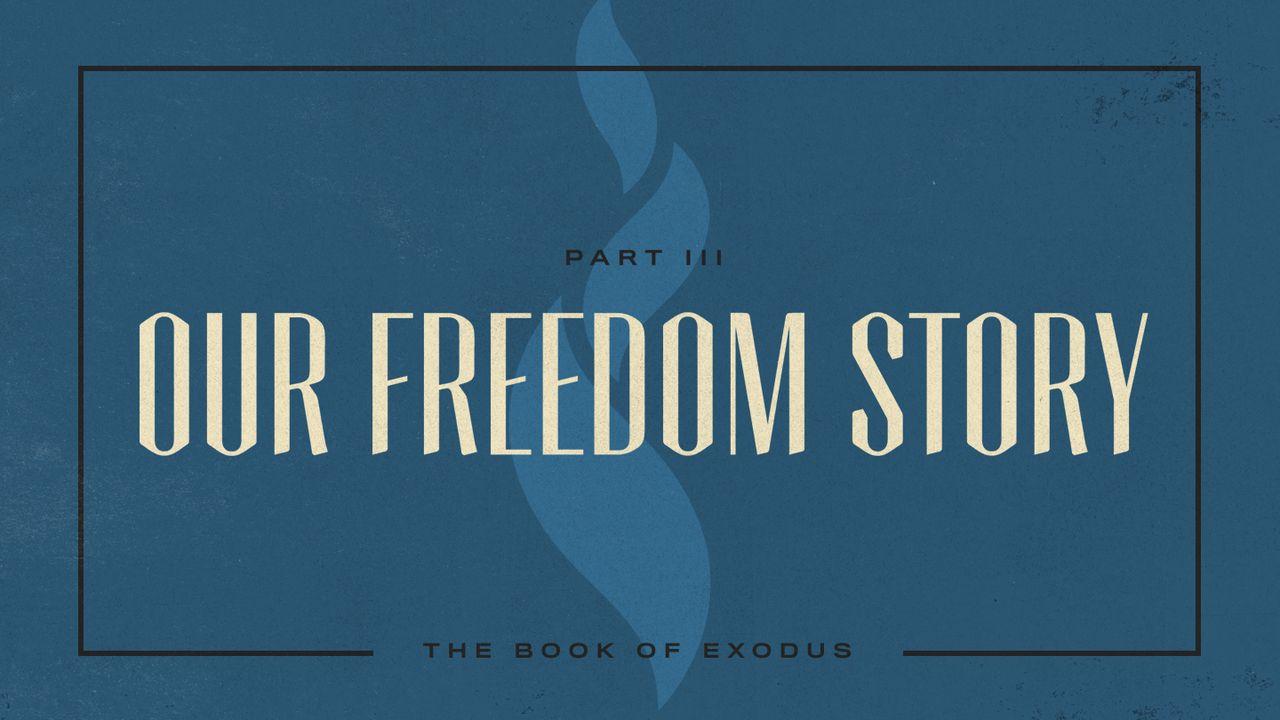Exodus: Our Freedom Story預覽

It's Contagious
By Pastor Dan Hickling
“You stretched out Your right hand; the earth swallowed them. You in Your mercy have led forth the people whom You have redeemed; You have guided them in Your strength to Your holy habitation. ‘The people will hear and be afraid; sorrow will take hold of the inhabitants of Philistia. Then the chiefs of Edom will be dismayed; the mighty men of Moab, trembling will take hold of them; all the inhabitants of Canaan will melt away. Fear and dread will fall on them; by the greatness of Your arm they will be as still as a stone, till Your people pass over, O Lord, till the people pass over whom You have purchased. You will bring them in and plant them in the mountain of Your inheritance, in the place, O Lord, which You have made for Your own dwelling, the sanctuary, O Lord, which Your hands have established. The Lord shall reign forever and ever.’ For the horses of Pharaoh went with his chariots and his horsemen into the sea, and the Lord brought back the waters of the sea upon them. But the children of Israel went on dry land in the midst of the sea. Then Miriam the prophetess, the sister of Aaron, took the timbrel in her hand; and all the women went out after her with timbrels and with dances. And Miriam answered them: ‘Sing to the Lord, for He has triumphed gloriously! The horse and its rider He has thrown into the sea!’”—Exodus 15:12–21 (NKJV)
This passage is the conclusion to a song of praise that began back in the beginning of Exodus chapter 15. It’s an expression of worship that Moses leads the children of Israel in as they respond to God’s mighty work of deliverance at the parting of the Red Sea. It’s a wonderful moment and a beautiful foundation for this newly-delivered nation to begin building their history upon. But there’s something else here that deserves our attention.
After Moses concludes his song, we see that his sister, Miriam (by being the sister of Aaron it would also make her the sister of Moses), has a song of her own. Miriam’s song isn’t nearly as long as her brother’s. All things considered, it’s rather short and only occupies a single verse. But Miriam’s song is defined by the one feature that defines all true praise: it glorifies God! It’s direct and to the point, God has gloriously triumphed . . . what more is there to say?
Yet Miriam’s song does reveal another important principle to us. We can’t help but take note that it was after her brother led the people in praise that she followed in the festivity of celebrating God’s character. This shows us that praise is contagious! When our hearts are moved to sing about the goodness of the Lord, He has a way of causing it to rub off onto others.
Although Miriam is not specifically named, it’s most probable that she is the “sister” mentioned back in Exodus 2, which would mean she was present during her baby brother’s miraculous journey as an infant in the basket on the river. She was likely the one who advocated that Pharaoh’s daughter enlist Moses’ own mother to raise him, making her a vital link in God’s providential chain! In any case, Miriam had been one of the earliest eye-witnesses to the way God had been working through her brother to fulfill His ultimate work of delivering His people.
She had a song to sing! And after a long life of seeing His promises finally coming to fruition (she would be over eighty years old at this point), this is the song that rose to the surface from the depths of her experienced soul. How the Lord must have used the familiar familial tones of her brother’s voice, lifted in praise, to prepare the way for her own heartfelt expression to take flight!
The point is that we never know who we might be touching or what effect we might be having on others as we worship the Lord. And while it should never serve as the motivation for our adoration, it’s worth knowing the Lord will often use our worship to spread a holy fire to the hearts around us!
Pause: What does Miriam’s song indicate about the nature of worship?
Practice: Consider how you've personally been influenced by the worship of someone else. What does this reveal to you?
Pray: Lord, I ask that You would replace any inhibition I may have in lifting my voice to You with a holy boldness and confidence that You’re using it to embolden others in their adoration of You. Amen.
關於此計劃

In part three of this seven-part study through the Book of Exodus, we'll explore Exodus 14–17.
More









